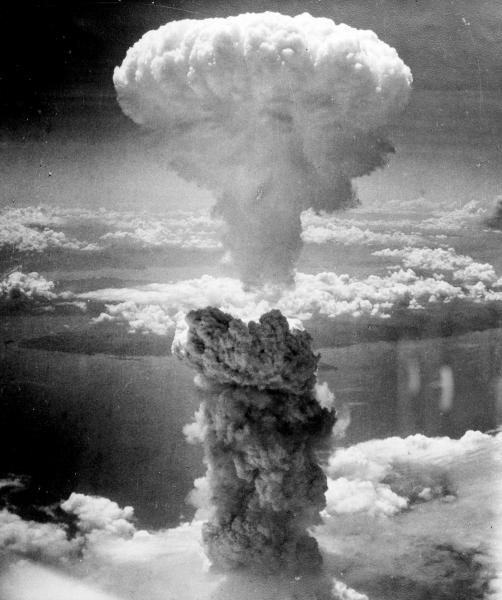Here is the PSA,
And before going on, let me point out that duck and cover has the greatest value, but the root of that advice can be discussed another day.
"If I seek to acquire such weapons [chemical and nuclear], this is a religious duty. How we use them is up to us."
We’ve had reason to worry about terrorists using nukes for at least 20 years, not to mention more recent concerns that North Korea or Russia might get frisky, that a Pakistani weapon might fall into the wrong hands, that Iran might make it to the finish line with their nuclear weapons program, that China might take umbrage at something or other, or any of a multitude of other worries. The bottom line is that the Doomsday Clock is as close to midnight as it's ever been, and it behooves us to know what to do if the worst comes to pass.
A sobering fact is that, in the event of a nuclear explosion, it’s what we know before we can hear the first public service announcement that will save our lives. If someone, say in their car, sees a bright flash and turns on the radio to try to find out what to do, they have no more than 5-10 minutes to take the actions that are going to save their lives; between the electromagnetic pulsations (EMP), shock, and bureaucracy it’s going to be hard for any government to get reliable information on the airwaves in time to help out with the very first actions that will save lives.
In fact, according to Department of Energy calculations, up to a million lives can be saved – or lost – depending on how many people know what to do. That’s why NYC released this PSA – in the remote event that there’s a nuclear attack of some sort, people don’t have the luxury of waiting to hear what the government tells them to do.
As to what those actions are, the video lays it out pretty well:
- Go inside a building (ideally a large one) to shelter from the fallout coming down – best to be in the middle of a large building so you can get as far from exterior walls and roof as possible
- Stay inside until the government has a chance to find out where the fallout “plume” is at (where the radiation levels are most likely to be dangerously high) and, for those within the plume, for the radioactivity to decay away to safe levels (about a day or two)
- Listen to the news to find out if you’re in the plume when you can go outside, if you need to evacuate (and which way to go), and other information that will help keep you safe.
Of course, in the age of COVID, some see a conspiracy behind every blade of grass, and the conspiracy mongers are speculating that the government must know that “something” is going to happen, which is why they decided to post this information now. What these folks tend to neglect to mention is that we had years and years of almost identical messages during the Cold War (I remember listening to them when I was a kid) – not because we knew the missiles were in the air (which they weren’t), but because they knew that advance knowledge will save lives…the same as Mayor Adams and the NYC government today.
Here’s the bottom line – if there is an attack, having this knowledge will save lives, possibly hundreds of thousands of lives. That’s a good thing. If there isn’t an attack, millions of New Yorkers will have spent a minute or so listening to the same message their parents and grandparents had heard a generation or two ago. A minute (or so) of time versus possibly saving many lives sounds like a good trade-off to me.
My work is usually solely mine, but in this instance, thanks to my friends, who contributed thoughts, words, and discussion to this pre-emptive piece.




